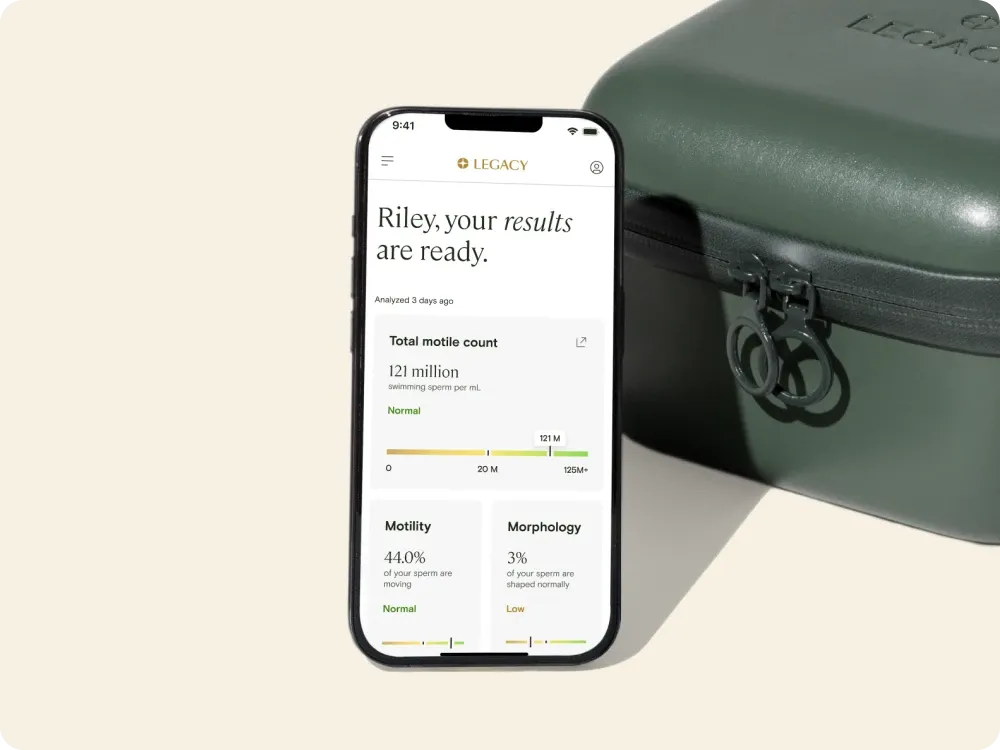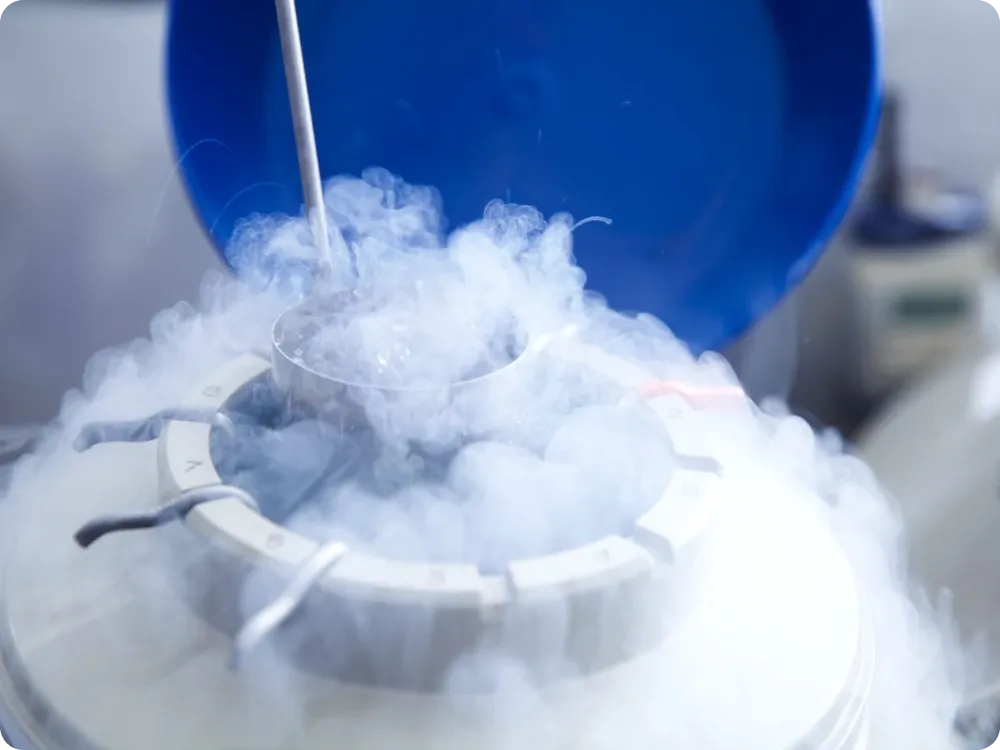Preserve the dream of parenthood after cancer treatment.
You don’t have to sacrifice your future family to your chemotherapy, radiation, or surgery. Freeze your sperm quickly and affordably, so you can get back to taking care of you.

At-home collection

Free expedited shipping

Sperm frozen in less than 48 hours
Trusted by





“I’m so thankful for Legacy. They went above and beyond and delivered the kit to the hospital. Keeping my dream of a family one day alive”
Robert
Undergoing chemotherapy
Fast, secure sperm freezing means your treatment isn’t delayed
We’ll get your sample frozen in as little as 3 days. A fertility advisor can help guide you step by step through the process of fertility preservation — you have enough on your plate right now.
Most flexible
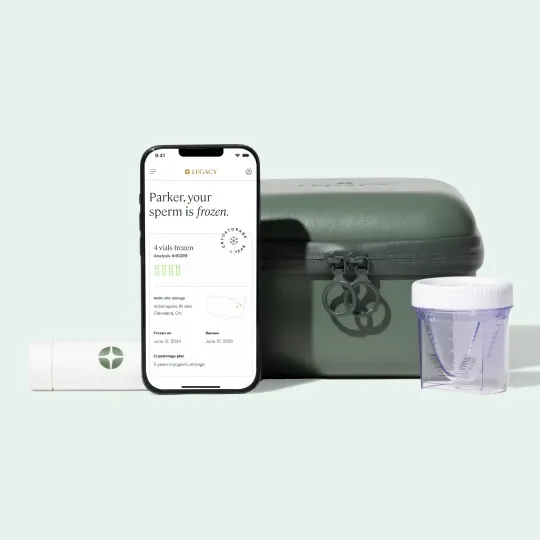
For Today
1-year storage
This comprehensive semen analysis that ensures your sample is viable for freezing. Flexible, renewable storage plan to get you started.
$540
$432
In stock,
1 collection kit (semen analysis)
4 vials
1-year storage (renewable)
Pre-chemotherapy
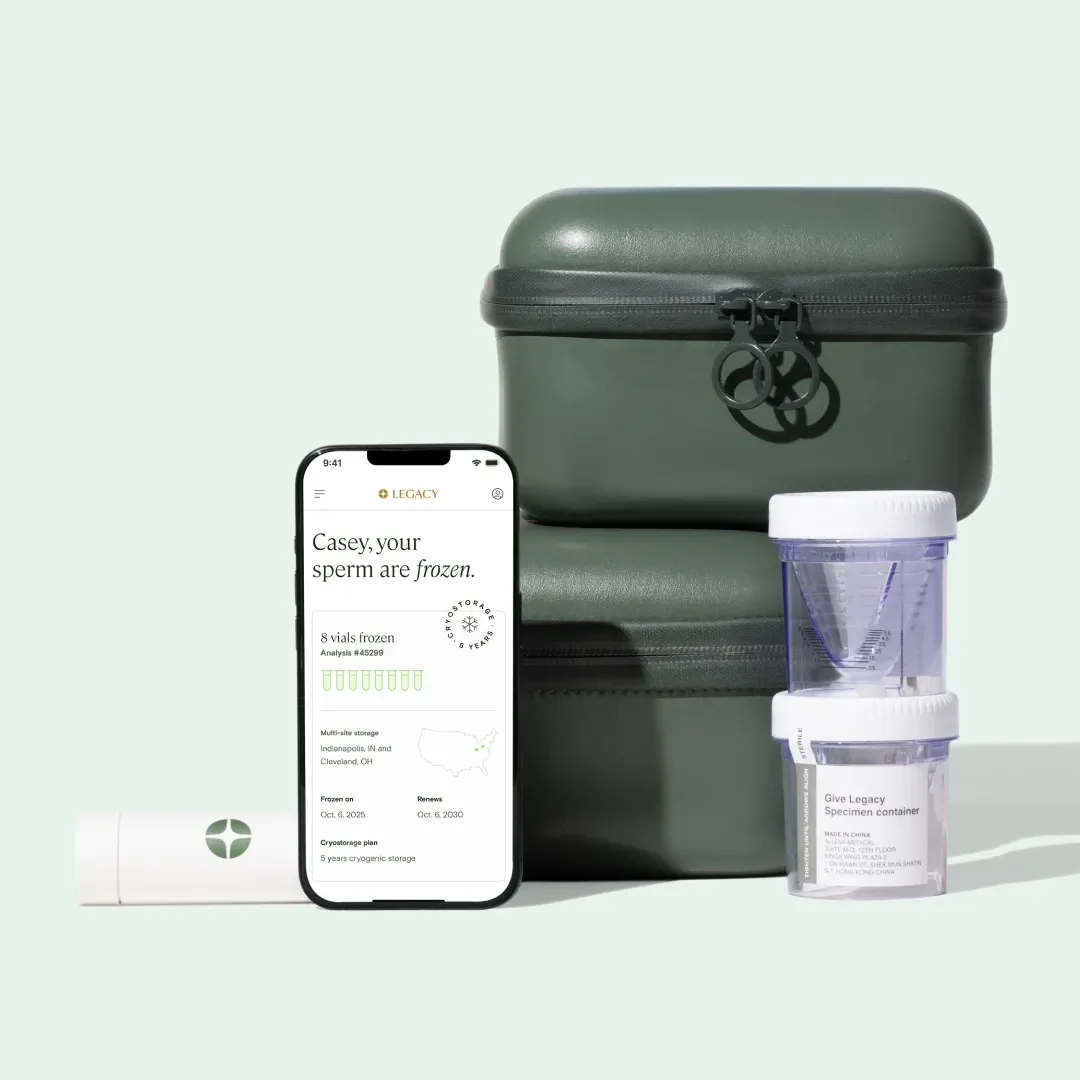
For Tomorrow
5-year storage
Peace of mind with the flexibility to renew your storage plan after 5 years.
$1,495
$1,196
In stock,
2 collection kits
1 STI test
8 vials
5-year storage (renewable)
Best value
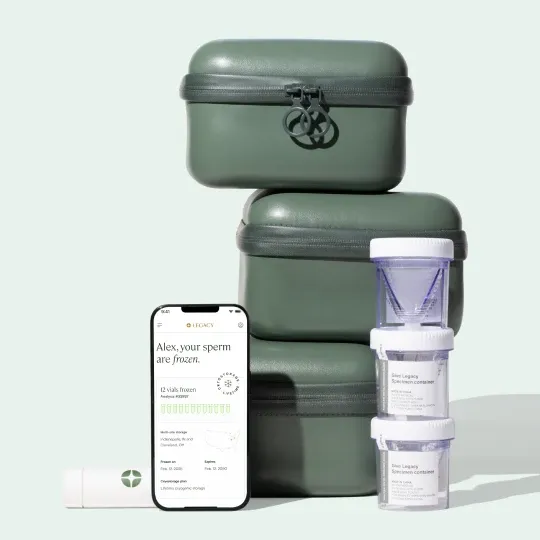
Forever
Lifetime storage
Our most comprehensive package offers long-term storage for maximum assurance.
$4,995
$3,496.50
In stock,
3 collection kits
1 STI test
12 vials
Lifetime storage
DNA fragmentation analysis (especially important for those who have been exposed to chemotherapy or radiation)
If you’re an oncology patient, please reach out to our Client Success team to get 25% off sperm freezing and expedited shipping.
how it works
Sperm freezing before cancer treatment
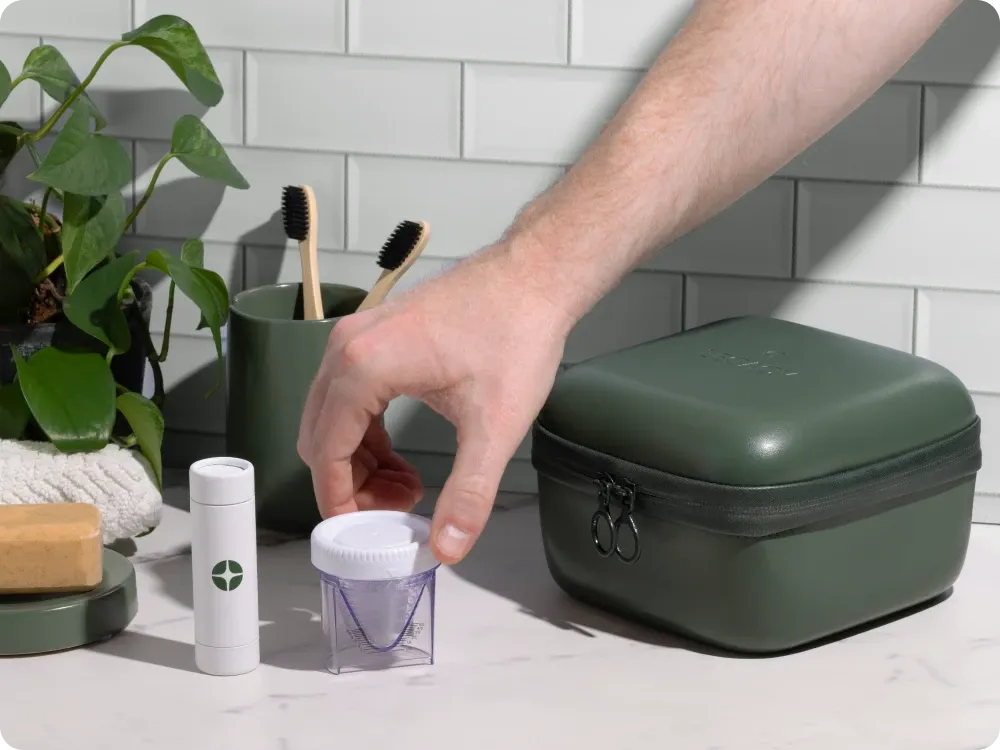
01
Order your collection kit online
Produce your sample at home and ship it back overnight with a prepaid label. We’ll analyze your semen to ensure it’s viable for freezing.
“This has been life-changing. My brother got a rare form of cancer at 34. He was admitted to the hospital for chemotherapy, Legacy was able to get him a kit the next day. Storing his sperm just in time.”
Claudette
Sister of a Legacy client
Frequently asked questions
Any question still uncovered?
